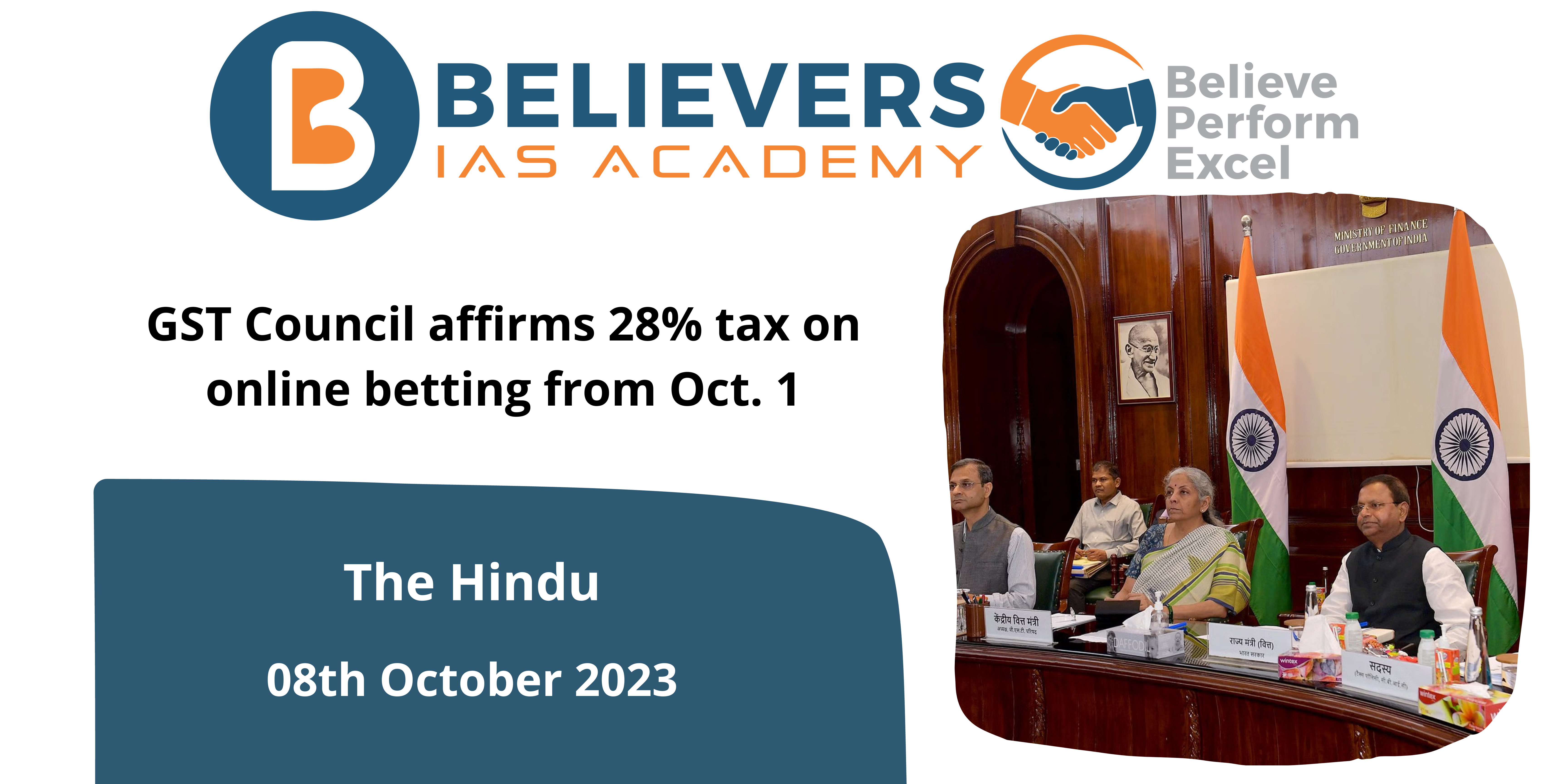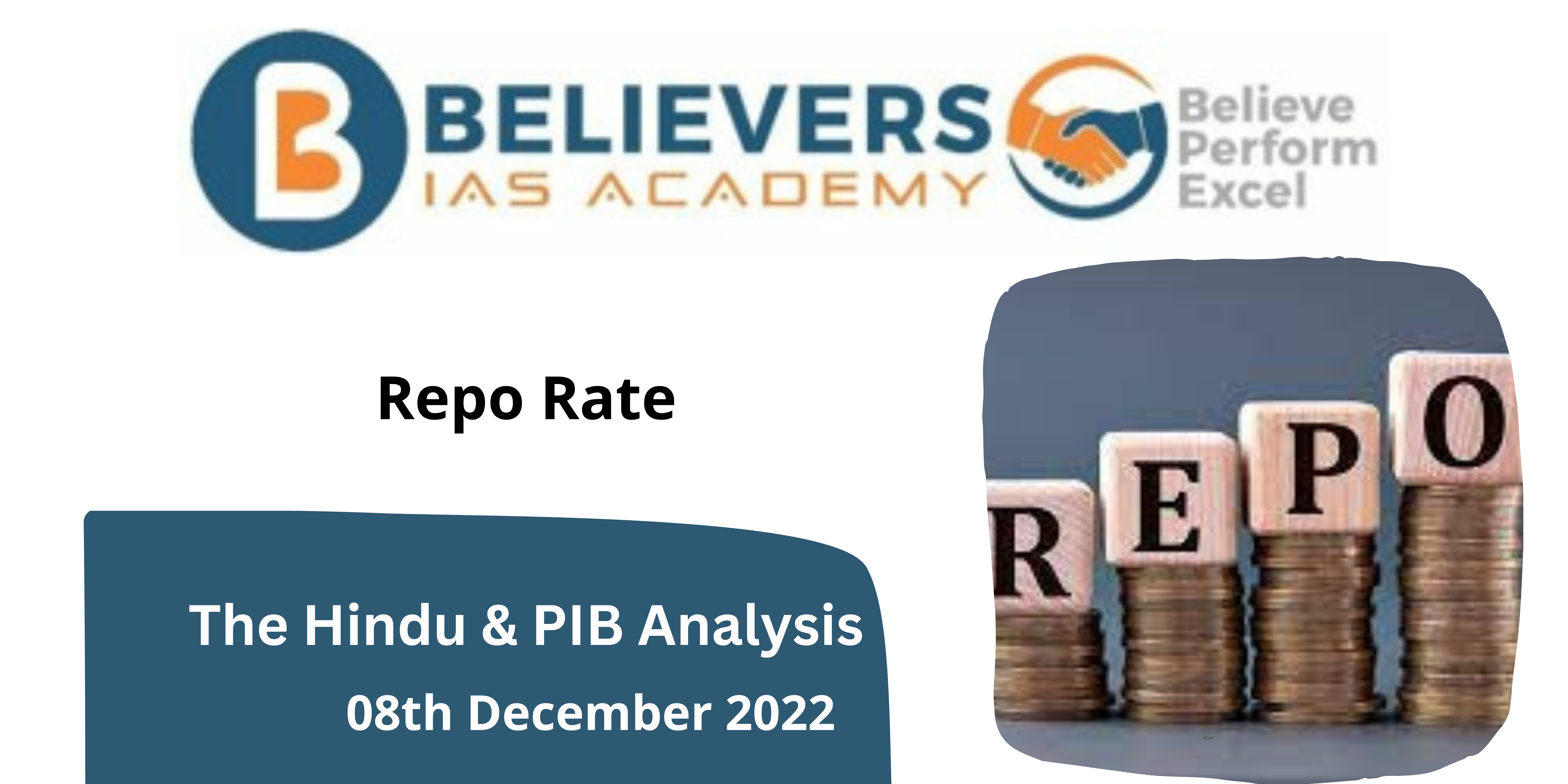GST Council affirms 28% tax on online betting from Oct. 1
Context
The Goods and Services Tax (GST) Council resolved several lingering issues on Saturday, including lowering the tax rates on some millet-based products, adjusting the age-related requirements for members of the eagerly anticipated GST Appellate Tribunals, and transferring taxation authority over extra-neutral alcohol to the States.
What is the Goods and Services Tax?
The Indian government implemented a comprehensive, destination-based indirect tax on July 1, 2017, to replace the existing intricate system of several indirect taxes imposed by the national and state governments.
GST, which applies to the provision of goods and services across all of India, aims to provide a streamlined and unified taxation structure. To stop the cascading impact of taxes and lessen the tax burden on consumers, it incorporates several central and state taxes, including excise duty, service tax, VAT, and other indirect taxes.
Which are the areas where the GST tax has been added?
- Reducing Tax Rates on Products Made of Millet: The GST Council reduced tax rates on some products made of millet. This modification aims to promote millet intake, which is thought to be healthy and environmentally responsible.
- Age-Related Standards for GST Appellate Tribunals Have Changed: The GST Appellate Tribunal members’ age-related standards were modified. These modifications most likely have to do with the requirements for candidates to sit on these tribunals.
- Transfer of Extra-Neutral Alcohol Taxation Rights to the States: The taxation rights for extra-neutral alcohol were given to the states. States may have more authority over the taxation and regulation of the manufacture and sale of alcohol as a result of this.
- 28% Levy on Online games and bettings: The 28% tax levy on online gaming, casinos, and horse racing, which went into effect on October 1 despite certain states failing to adopt enabling legislation, will not be repealed, the GST Council concluded.
What is the position of the government regarding taxes on online gaming?
- Tax Levy: The GST Council decided to impose a 28% Goods and Services Tax (GST) levy on all wagers placed on horse races, online casinos, and real-world casinos.
- Date of Implementation: On October 1st, a 28% GST charge will become effective.
- Definition of the Valuation Rules: The Council gave crucial clarification about the 28% levy’s valuation guidelines. The tax, according to Finance Minister Nirmala Sitharaman, will only be assessed on the entry fee and not on any winnings. For instance, if a person enters a casino by purchasing Rs1,000 worth of chips, plays a round, and wins Rs300, the tax will not be applied to the full Rs1,300, but only to the entry fee of Rs1,000.
Repeat taxation: What is it?
- Repeat taxation occurs when the same income or transaction is subject to several taxes or levies at various stages or by various authorities within a taxation system. This might result in the same economic activity being subjected to two or more taxes, which would raise taxes for both individuals and businesses.
How is the new tax regime going to affect the gaming industry?
- Increased Tax Burden: The industry’s tax burden may dramatically increase if a 28% GST is imposed on the face value of bets. Businesses working in the sector may see decreased profitability as a result of this higher tax rate.
- Impact on Consumer Spending: Consumers who partake in online gaming, gambling, and horse racing may incur greater prices as a result of the higher tax rate. As a result of the increased expenses, there may be a decrease in consumer spending in the sector.
- Impact on Investments: The Indian online gaming market is regarded as a sunrise industry because it is attracting major investment and creating job possibilities. Due to the GST levy’s possible impact on profitability, more investments may not be made.
- Job Losses: If an industry has lower consumer spending and profitability as a result of higher taxes, job losses may be the result. The industry’s job prospects and growth potential could both suffer.
- State-Level Regulations: Regulations at the state level may differ depending on how some states, such as Sikkim and Goa, feel the tax should be levied and governed. The taxation system could become complicated and inconsistent between different locations as a result.
- Influence on Revenue: On the plus side, the GST levy’s introduction can bring in more money for the government, which it might put toward various public projects and services.
- Compliance Issues: Businesses in the sector may have more difficulties with compliance as a result of the adoption of the GST levy. Administrative burdens would increase as they would have to ensure accurate documentation, accurate tax calculations, and timely return filing.
- Potential for the Black Market: A high tax rate can encourage the expansion of the illegal gambling industry or the black market. To escape the additional tax burden, some gamers can choose to partake in unregulated activities.
What is the Way forward?
- Dialogue and advocacy: Industry participants, such as gaming businesses, trade groups, and players, should have frank discussions with the government about their concerns and the potential effects of the tax. A more balanced tax policy that promotes industrial expansion and guarantees equitable revenue collection for the government can be sought through advocacy initiatives.
- Data and Research: To demonstrate the sector’s economic and social influence, the industry can perform and provide research and data-supported studies. Building a case for a more benevolent tax treatment can be aided by demonstrating the industry’s contribution to employment, investments, and economic growth.
- Consultations at the state level: Given the opposition from some states, such as Sikkim and Goa, business representatives can meet with these governments to discuss specific issues and look into possible solutions or exclusions that would be in line with their regulatory systems.
- Efficiency and compliance: Gaming companies should concentrate on streamlining their processes to increase compliance and efficiency with the new tax laws. To avoid any non-compliance difficulties, accurate documentation, tax calculations, and timely filing of returns would be necessary.




